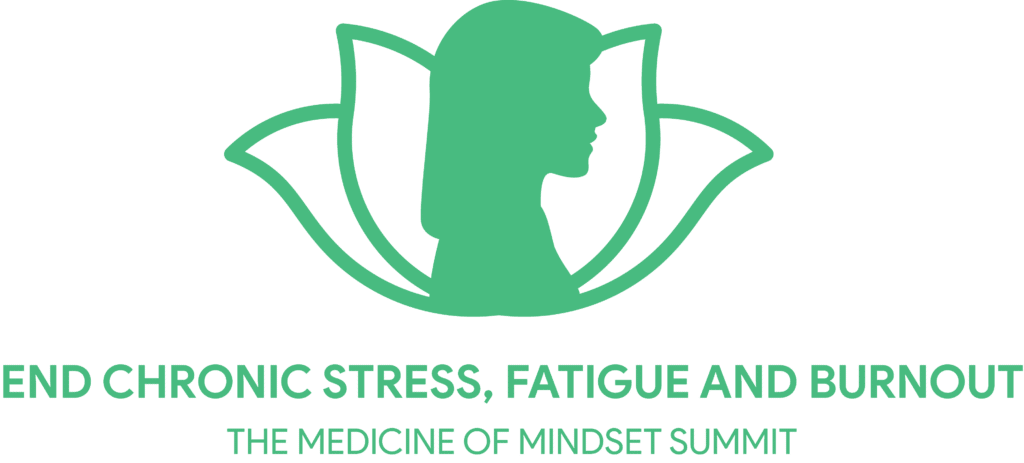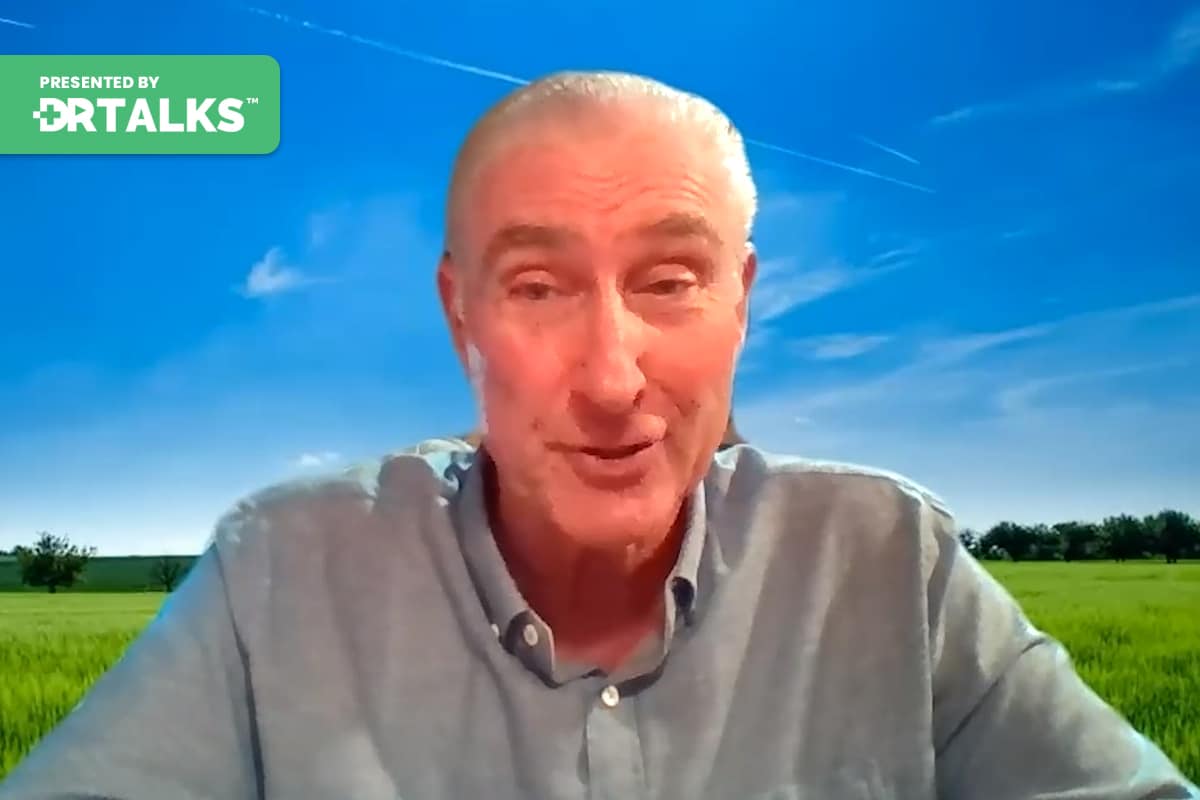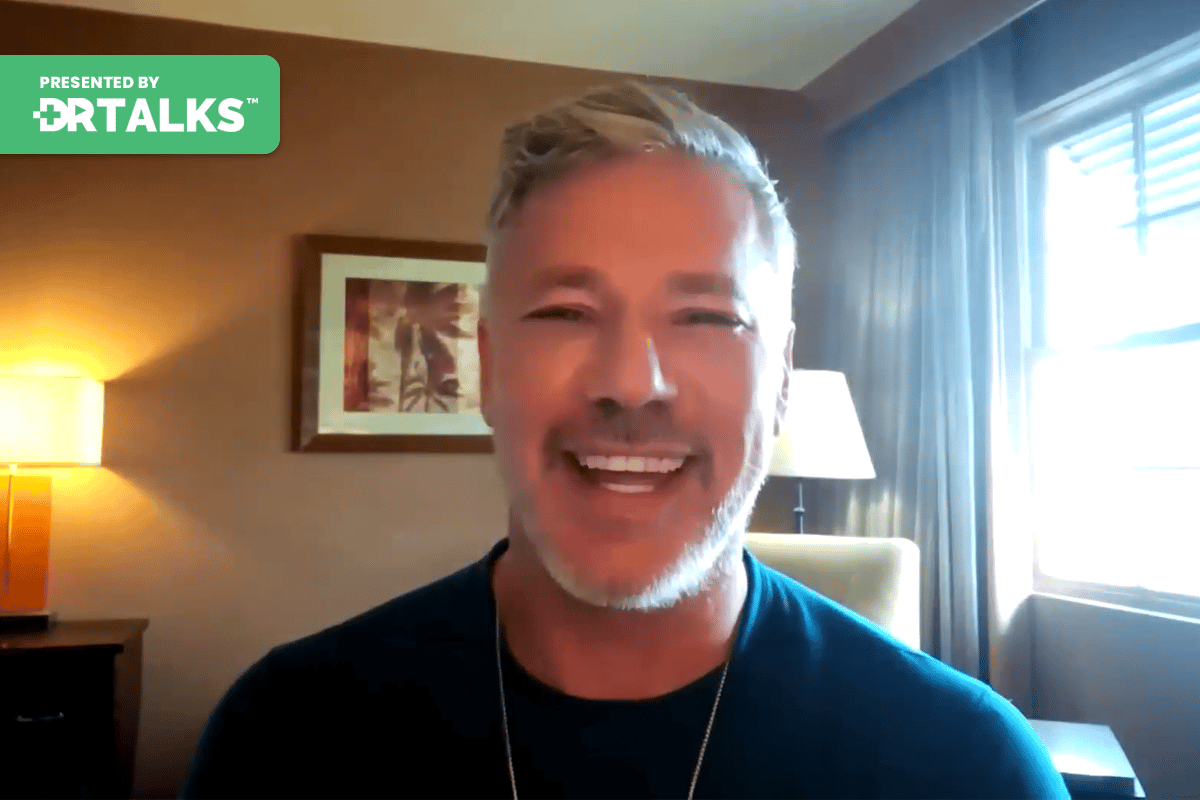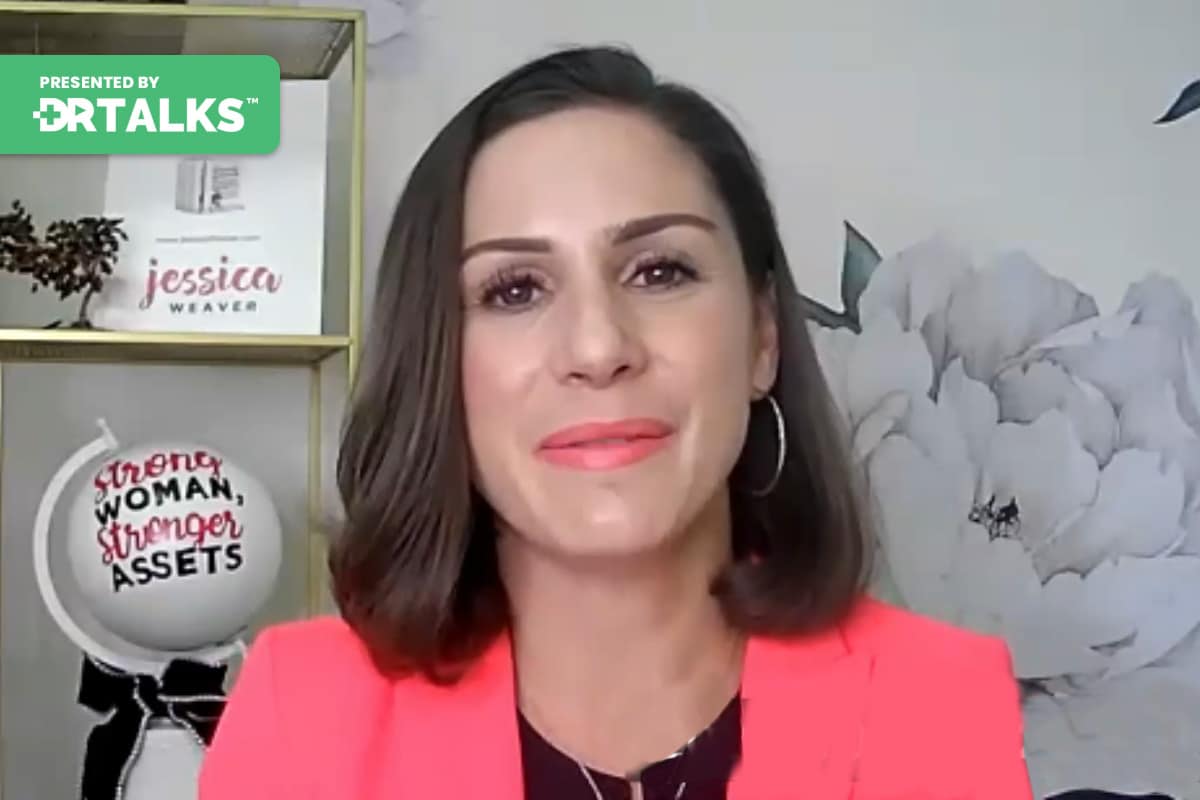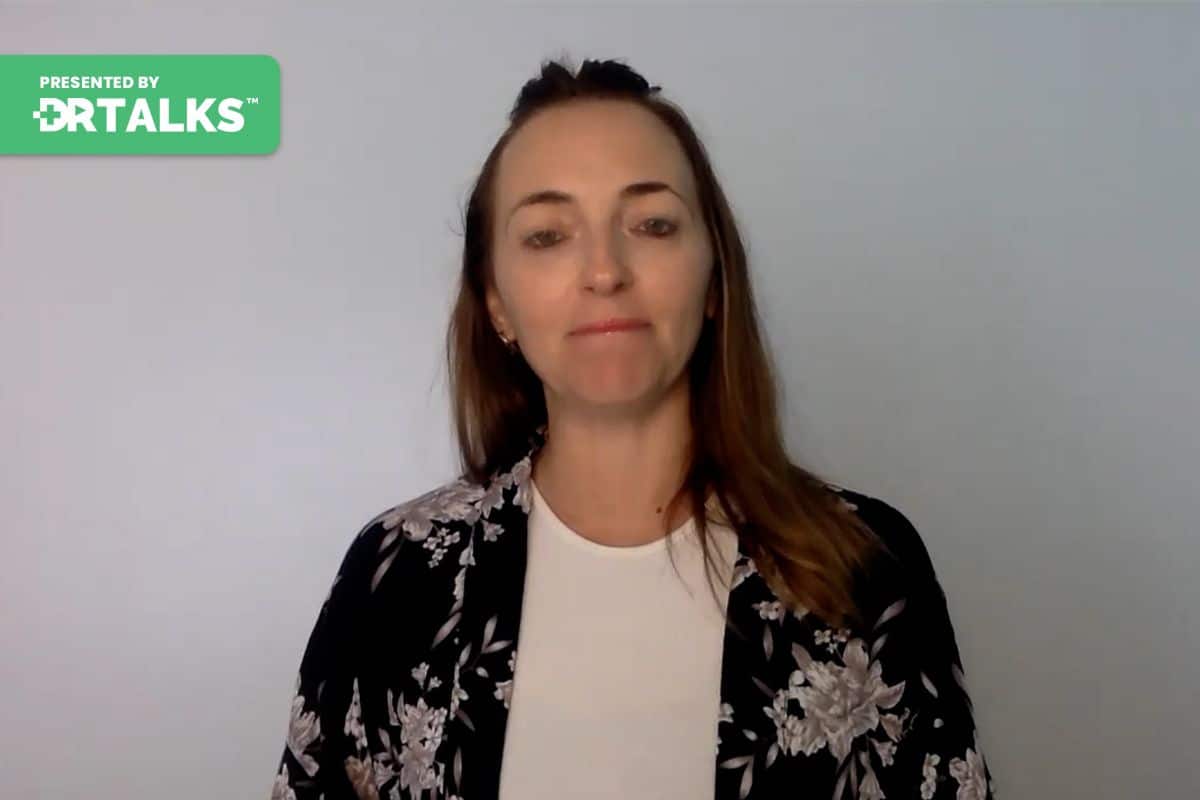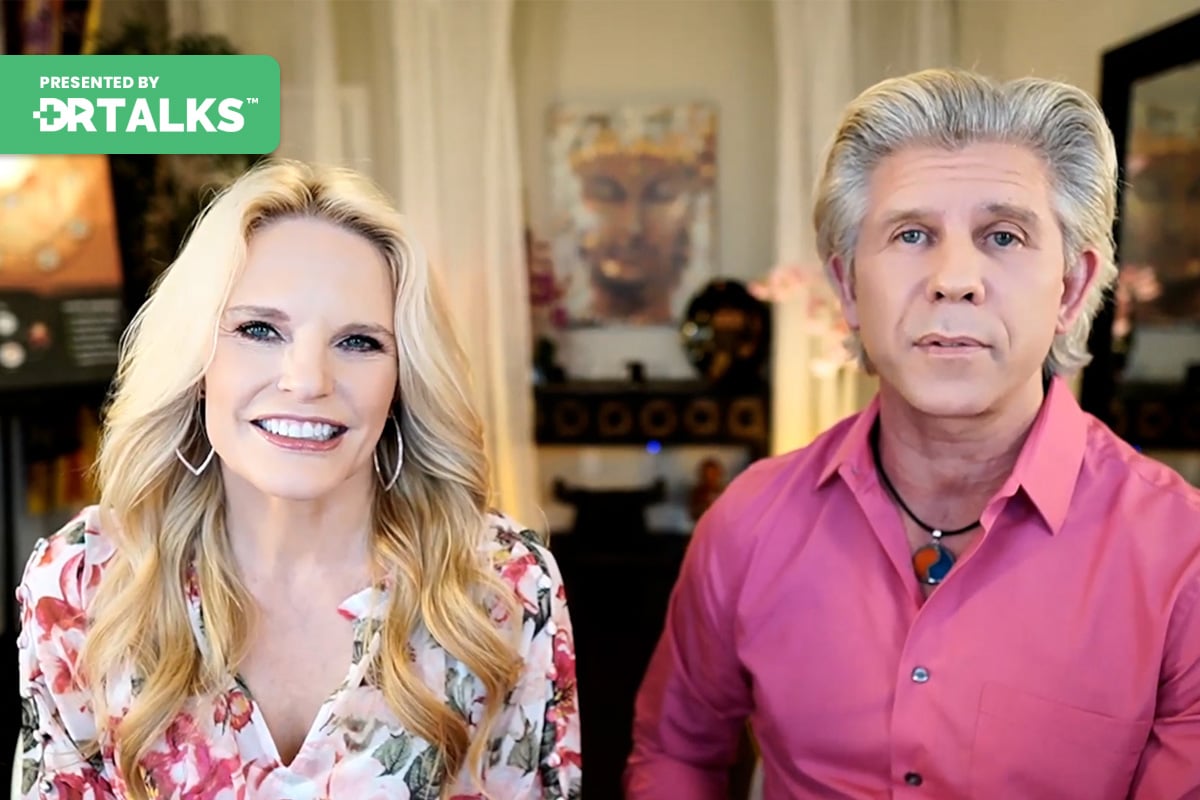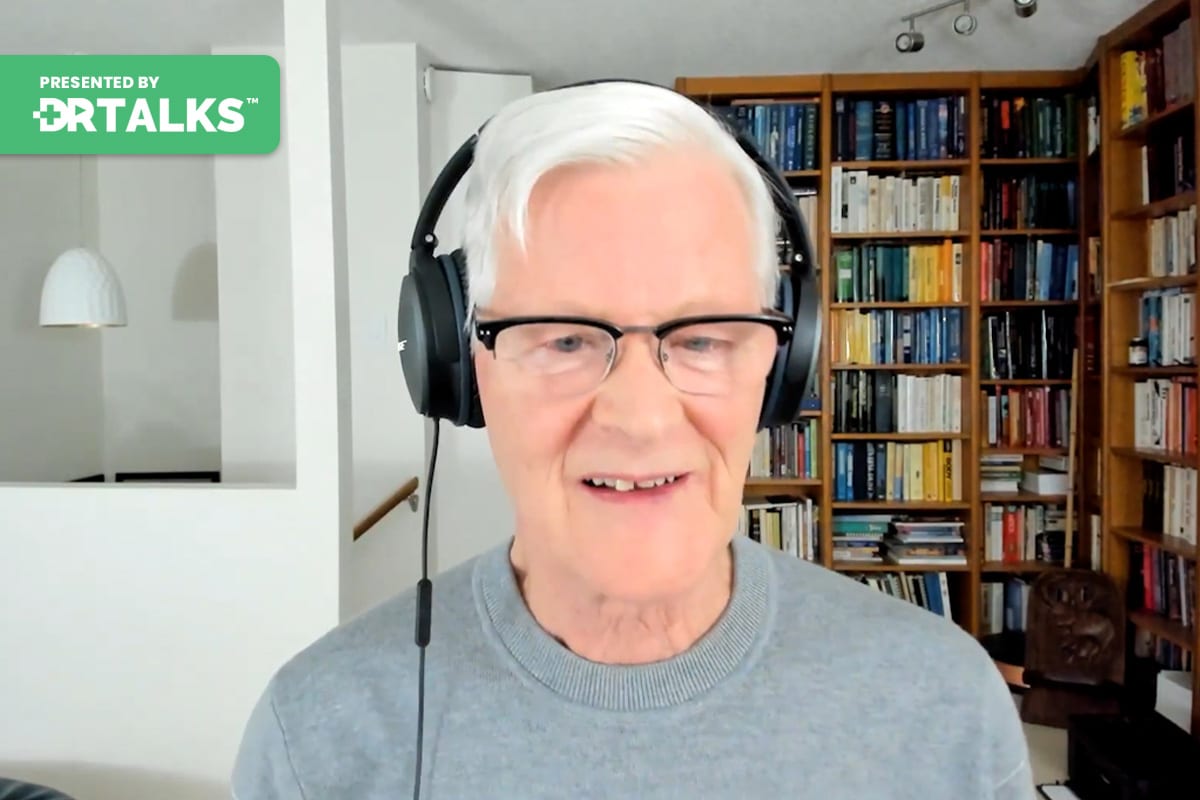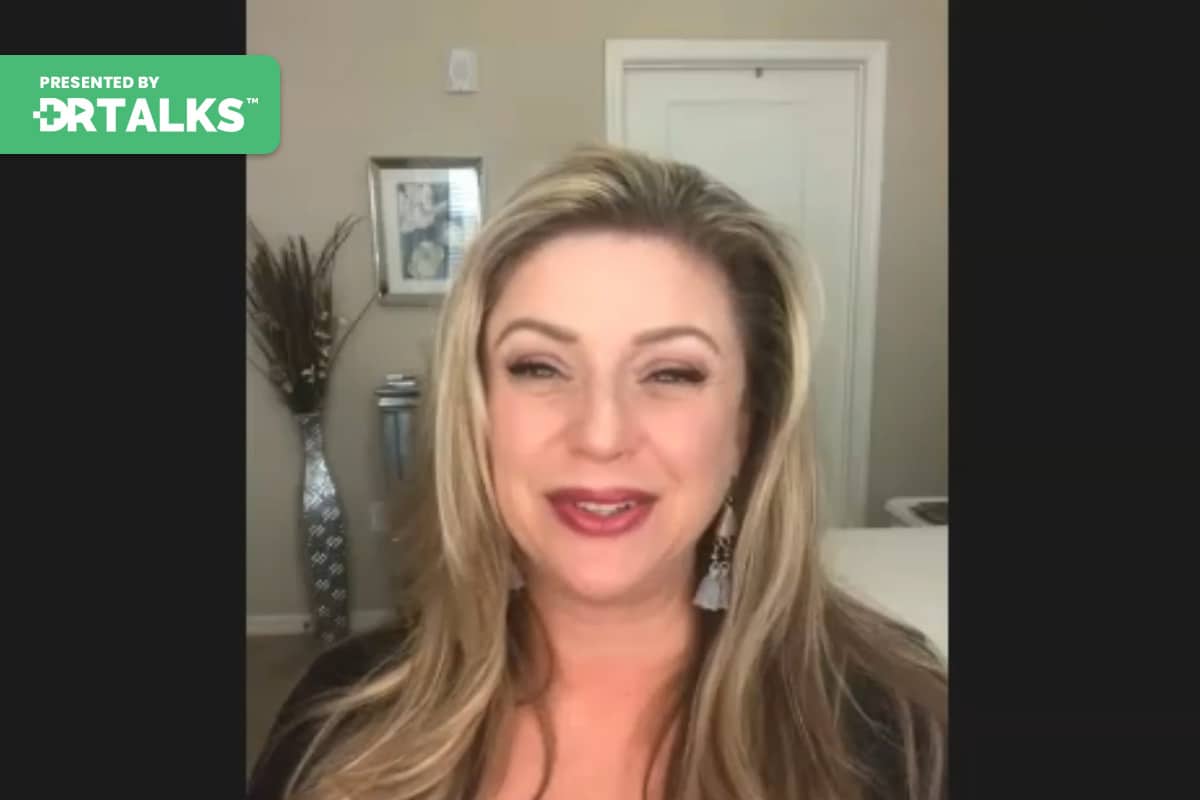Join the discussion below
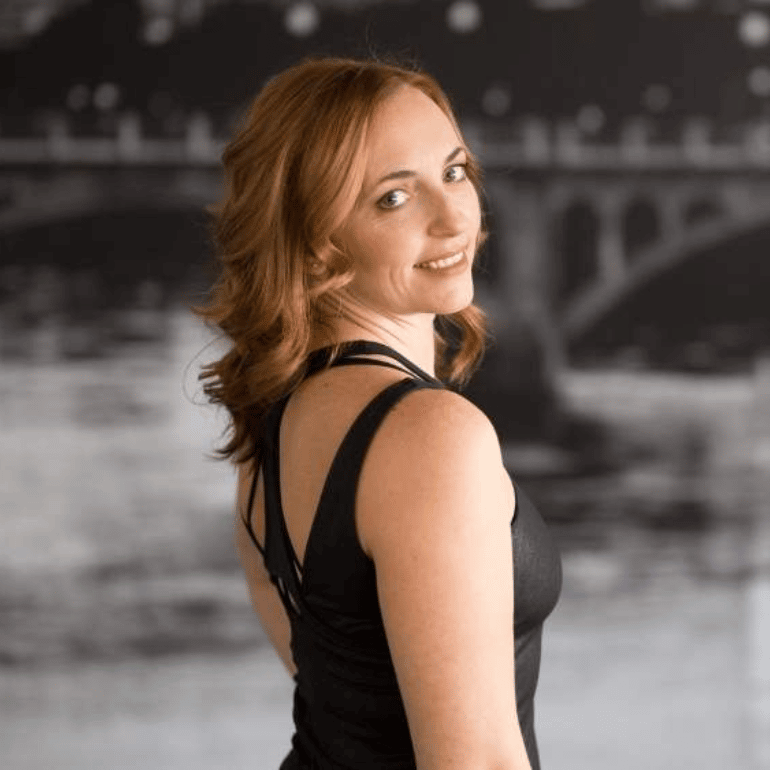
Jana Danielson is an award-winning wellness entrepreneur who through her own experience with physical pain turned her mess into her message which has now become her mission. She is an Amazon Best Selling Author, owner of Lead Pilates and Lead Integrated Health Therapies, her bricks & mortar businesses and the... Read More
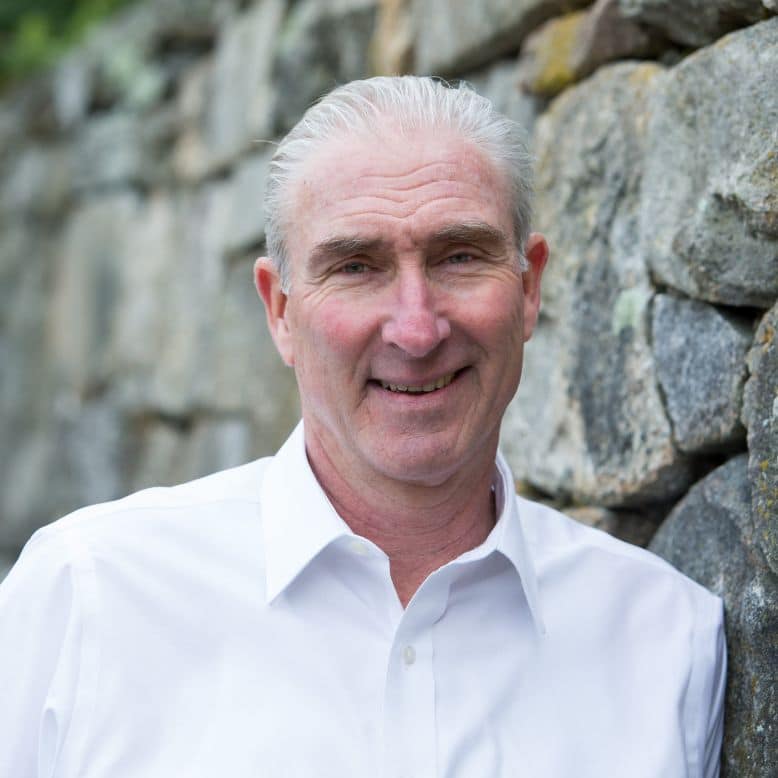
Russell Mariani is the co-founder of The Center for Functional Nutrition in South Hadley, Massachusetts. He is a Health Educator and Digestive Wellness expert. He has been in private practice since 1980. He has his Bachelor’s degree from Rutgers University and a Master’s degree from Norwich University. He is a... Read More
- Did you know that gut health has a direct impact on our health
- Learn all how functional nutrition, hydration and our gut microbiome affect mindset
Jana Danielson
Well, I want to welcome everyone back to another amazing installment of The Medicine of Mindset Summit. I am your co-host, Jana Danielson and I’m so pleased to be presenting and chatting with our next guest who is Russell Mariani. He is the co-founder of the Center for functional nutrition and I have heard Russell speak a couple of times now and let me tell you, ladies and gentlemen, we are in for a treat today. So Russell, first of all, thank you for taking the virtual stage here at our summit and let’s just actually, I mean give our audience a little bit about who you are and how you came to be an expert in this area because everyone has a story I believe, especially in the health and wellness world. We were all gifted, something early on that that brought us to where we are today, so share with our audience what that has been for you.
Russell Mariani
Yes, thanks Jana and hello to everybody out there in virtual zoom land, have a I’m sure you’re having a fabulous summit and thanks for putting this together. So yeah, it’s interesting that you use the word gift because having a health crisis doesn’t feel like a gift when you’re first going through it, but it certainly turned out to be a gift for me and has allowed me to make a career and help thousands of people over the years. So I am a health educator, I think of myself as a health educator, digestive wellness expert and I help people to restore their health regain their health and then maintain their health over a long period of time.
I was at the ripe old age of 18 years old, living in New Jersey where I grew up and after several months of some uncomfortable symptoms, had a eventful meeting with a gastroenterologist who after his examination said to me that he thought I had colon cancer. But they had to do more to test. And so Over the next several weeks as they were getting ready to do the tests and get the results, I went to the library to try to figure out what the heck had gone wrong. You know, in my body. No internet at the time. This was 1973. Anyway, make a long story short, I was the doctor said, oh, I have good news. It’s not cancer yet. You have a pre cancerous condition. It’s called ulcerative colitis. It’s medically incurable. And you probably have to be on medication rest of your life and possibly have surgery To remove all or part of your colon before the age of 30 as you can imagine, this was not good news to me. And I kept saying, well, what causes this? How did this happen? You know, you’re the fight was perfectly fine and perfectly healthy. And then I went on this crazy high protein diet and then all these symptoms started happening. Don’t think these things are connected. And he said, No, they’re not connected. Your condition has nothing to do with your diet by the way. Don’t self diagnose, you don’t know what you’re talking about. So, anyway, so at the end of that session I knew two things. I knew that this doctor was not going to be able to help me. And number two, I was on my own.
So, but I was so I was very lucky in that when I went out looking for a solution to my health challenge because I didn’t want to go to the medical room, it didn’t make sense to me. I was convinced because I had so radically changed my diet a year prior to all these symptoms. But that’s where I was going to find a solution or that’s where I hoped I would find a solution. And I was lucky because when I was not looking for help, the first people that I found were skilled in this area, very skilled in this area. I was introduced to something called the macrobiotic community which was back in the mid 19 seventies and their whole approach was not just food, but certain principles, physiological principles.
So I got better very quickly and literally within a matter of months. And so I was very impressed and then I moved out of New Jersey to Boston to study. I moved into a study house where people who were learning how to not just heal their physical conditions, but to realize their full potential to find out, You know, what am I really here for and how can I have an adventure with my life, not just, you know, getting better from a physical and it was like the beginning of that process. So that was my introduction. And then over the next seven years, I did a lot of exploring the world of alternative health and healing was very interesting back in the 1970s, and I consider that period of time, that seven year period from 1973 to 1980 my apprenticeship then starting in 1980 I put my shingle out as they say, and started helping other people to learn the things that I had learned so that they could regain their health and well being as well. So it’s kind of a cliff note version of my story.
Jana Danielson
And so when you talk about functional nutrition, let’s just define it, let’s frame it for our audience. What do you mean by functional nutrition?
Russell Mariani
Great question. So, the basic idea is that whatever the hell, whatever the symptom is, whatever the diagnosed condition is, is basically the result or consequence of cells, organs and system not working properly, not functioning properly, the stomach is supposed to behave this way when it’s functioning normally, but if you’re having acid reflux and stomach pain and gas and bloating, that’s not supposed to happen. So, the idea is functional medicine and functional nutrition is about learning, first of all how the body is supposed to work because when everything in your body is functioning normally, then you have no negative symptoms at all. When everything is functioning normally, you should be manifesting the symptoms of health, sleep, great skin, good digestion, good elimination, good mood, good energy, flexibility.
But rarely do we talk about the symptoms of health. Everybody’s always talking about the symptoms of disease, functional medicine, functional nutrition as I understand it as I practice it as I teach it, the word disease doesn’t exist or the word disease means disc, ease, the lack of ease or the lack of normal functioning. We can how people get away from the big scary diseases and help them to understand that whatever the name of the disease is. Whatever the name of the condition is, the cause of the symptoms is the lack of normal functioning of your heart, of your kidney, of your intestines, of your gallbladder or whatever. And so functional medicine, functional nutrition is a set of principles and a set of practices that when you apply them consistently day after day after day, your body heals itself.
And so it’s, it can feel quite magical, especially if you’ve been sick a long time. I was talking to a young woman today and then I started working with back in June. She’s only 25 years old, but when she was 15, she had her gallbladder removed and she’s been suffering ever since, terrible conditions, no energy, lots of discomfort. And today she was on the phone laughing and crying because she’s never felt so good in her life. She’s never had this kind of energy, this kind of flexibility, the restoration of her health. So so all of that is possible by the understanding of a few basic principles which I’m happy to share. And then looking in seven root cause areas. And you mentioned one of them earlier hydration. And simply by anyway, so maybe we can talk about the two principles of functional nutrition. And then from there,
Jana Danielson
I think let’s do that. Let’s let’s, you know, segue into the principles. And then that will give our audience time to get a pen and paper because they’re going to want to jump down. I believe these seven areas that you’re going to be sharing with them. So let’s start with the principles.
Russell Mariani
Okay. And of course people can go online to our website, purchase my book or download a free lecture that will describe the same seven areas that I’m going to talk about. And I’ll mention them only briefly to principles that I have found extremely helpful in explaining to people this mysterious thing called the human body. So the first principle is that the body is constantly healing itself, every organ of your body, every system of your body, every cell of your body. And the human body is made up of trillions hundreds of trillions of cells. Each individual cell is genetically programmed to function normally. The problem is that the person in charge of the body hasn’t been properly educated into working with the body in a cooperative way so that everything functions properly. So first principle, the body is constantly healing itself, meaning the body is constantly trying to heal, trying to regain normal function and trying and then once it’s re established to maintain that function in the medicine books and the physiology books, this first principle is referred to as homeostasis.
So many people have heard that term and it’s a miracle, it’s a miracle that the body is hardwired to do this. Thousands of, you know, different functions going on simultaneously, and the body knows exactly how to keep all that in balance. Second is when it comes to how we treat ourselves the sleep we get what we drink we eat for food, all the things, all the influences, all the choices that we make in our diet and lifestyle, but mostly the physical inputs what we eat for breakfast, lunch, dinner snacks, what we take for supplements, what we take or might take for medication. The second principle says nothing is neutral.
There’s no such thing as any of those decisions that we make any of those choices that we make, not having an impact on our physiology, everything we eat everything we do everything we think everything we is either helpful or harmful. Everything is either what I call complementary to the normal functioning of our body or it’s actively insulting and so insulting habits, create all the negative symptoms, insulting foods, insulting habits, insulting behavior, complementary foods habits, behaviors supplements literally drive the body towards homeostasis. Drive every organ, every system every cell towards normal functioning and health. So obviously then it’s important to know well what’s the difference then? How do I know which habits are complementary? How do I know which foods are insulting? How do I, etcetera? And so that’s the kind of the next part of the conversation. What are, how do we figure out what’s complementary and insulting.
Jana Danielson
So this is where I want to Sprinkle in a little bit of mindset. Okay, so help us understand in your practice in like by now the thousands and thousands and thousands of people that you’ve worked with, two questions like kind of a two part question, I’m gonna make a big assumption here that when people start with you, they are coming almost like you’re my last hope or I have nowhere else to go or I have, I don’t know what else to do, which makes me believe that they would be in a less than optimal mindset about their health and their quality of life. So that’s I mean that’s a big assumption. How do you take? Right? So how do you take them from feeling that way? Because you can give them all of the ingredients, you can help them understand what’s going to support them, what supplements, what, you know, the hydration they need, but have you seen it where they still kind of get stuck? Because what’s happening up here is not supporting the changes you’re trying to make in their physical body with their nutrition.
Russell Mariani
These are great questions Jenna and great distinctions and 11 of the things that I learned a long time ago is that to put it in a phrase biology can override psychology in the 1970s, the big debate among, you know, in the holistic world was which is more powerful, the mind or the body. And that debate still goes on today and you know, you can make the argument, the mind is very powerful as you’re, as you’re suggesting. And if the mindset of the person is so deeply negative or so deeply fearful, they may not get better. Right? So we, we kind of all know that so people are always encouraged to do affirmations and meditate and try to try to get their mind to a more resourceful place. But I learned early on and this has been a very pivotal distinction and a very pivotal practice in my, in my work is to first of all help people understand, convey a sense of confidence that I am confident, I’m confident in my ability, but I’m mostly confident in their body’s ability to, I’m very confident about this health model because I’ve seen it work over and over and over again and I know that I’m not gonna miss anything essential.
So, but the most important thing in helping somebody move from fear to hope, the most important thing to take place in order for somebody to begin to regain the confidence that they’re actually going to get better is to facilitate a process where the patient or the client within a reasonable period of time. And I mean like 10 days, 14 days, 21 days has an actual experience that they cannot deny when they look in the mirror and they say to themselves, you know, again after working with me for a week or two or three, oh my gosh, this is really working, Oh my God, this is real. I feel different, I feel a shift. It’s amazing to me how often this happens within a matter of days or weeks. So we’re not talking about months for people to have this experience. We’re talking about days and I I refer to this as preview of coming attraction. The person isn’t 100% better. It’s impossible to be 100% better after years of abuse or years of insult years of ignorance, years of trying all kinds of things, but it just never worked so often people have this experience and then it’s not that they get worse again, but they realize it’s gonna take more time for that experience that they had to become the new reality to become the normal way that their body behaves.
Jana Danielson
You know, I’ve mentioned a part of this in another interview during the summit, but I just, you bring up a really important point in an experience that I just had, you know, a few months ago and I was diagnosed with, I’ve always been a gut person and was diagnosed with SIBO, which is small intestine bacterial overgrowth about two years ago. And because I don’t take medication, you know, my natural paths that you could try this antibiotic, it’s 1000 bucks a month, it’ll take a month and it will be knocked out. And I was like, okay, I don’t take medication, I will invest in this so that in four weeks I am better and that didn’t actually happen. And so you know, just trying to control it in different ways. And finally a few months ago, making the decision that I was going to, you know, remove wheat and dairy and eggs and sugar and alcohol just for the simple fact to heal my gut and see how my body would respond to that.
And when you talk about mindset for me in this experience, I’ve tried doing those kinds of elimination things before, but they were routed or they were grounded in that word elimination, right? Where the other side of my brain was like no, like no one is gonna tell me I can’t have, you know, a a margarita if I want to have a margarita, right? But what was so beautiful about the experience that I had just recently was that because I had it, I anchored my experience in healing my gut. I was intrigued by what I would experience in my gut from the healing perspective if I tried this and it totally changed the energy, the frequency, the vibration around the entire experience. And in the process of healing my gut, I’ve learned about myself in a different way. I know what foods my body doesn’t like, I know what foods my body does like. And so talk to us a little bit about, you know, these other aspects of wellness. We touched on hydration a little bit and that was a big piece for me. So I’d love for you to touch on hydration and can we just touch a little bit on like the gut bio, the microbiome and what you’re seeing in your practice and what for our audience are some practical ways to to know now that I’m learning about this, what’s my next first step to start to heal or just start to improve my health. So hydration and then microbiome.
Russell Mariani
Hydration, microbiome habits and you, you pointed out an essential piece of the puzzle when it comes to mind set, what do people think about when they’re asked to go on an elimination diet. Exactly. And so what I say to people after this, it’s very difficult to heal at the same time. You’re feeling restricted from all the things you love. And most people know that even though they love these things over here, they know that they’re either making them sick or they’re not allowing them to get better. Okay, So that mindset, So I tell people early on in the process and again, I’m a gut health expert. I’m working with people with very serious digestive problems. People who have been told you will never be able to eat wheat again. You’ll never be able to drink alcohol again. You’ll never be able to have coffee again. Pizza again, cupcakes, whatever. And I say to people very early in our conversation, very early in the program. The only relevant proof of a fully functioning digestive system. The only relevant proof of being really healthy and specifically having a very healthy digestive system is to be able to eat a wide variety of healthy foods and a wide variety of healthy snacks and on occasion, your favorite, whatever. Chocolate cake, a margherita, pizza, whatever. If you can’t have a piece of pizza Once a week, then you know what’s the point of it? All right. I grew up in New Jersey.
My parents are still alive. My dad’s gonna be 99 next in two days from today. Just turned 90. They have pizza every Friday night with a little red wine. They’ve been doing that for probably 50 years. So, so it’s very important for people to know that when you’re healthy, truly healthy, you shouldn’t have any restrictions. You should enjoy a wide variety of healthy food. You should know the difference of course, between really healthy whole foods and processed foods, et cetera. So, so that’s a major piece of the puzzle. Getting people to understand that they don’t have to be on a narrow diet of brown rice and beans and tofu for the rest of their life. That’s not what this is about. It’s about abundance, it’s about enjoying all of when we, so let’s just say something about the microbiome because you mentioned that, you know that you had cibo. So, and you mentioned about taking an antibiotic, you mentioned about, you know, eliminating certain foods. So the intestinal microbiome is arguably the largest organ in the body, the largest system of the body. And it’s the most influential number of cells.
And they’re mostly bacterial cells. Probiotics are healthy bacteria, dis biotics are unhealthy organisms like yeast and mold and fungus and parasites and things like that. So, but when, when you have a healthy microbiome, then you have no negative symptoms, no gas, no bloating, no cramping, normal bowel movements, normal elimination, all that stuff. The so it’s like we’ve been taught since Children that we eat foods to get protein and to get carbohydrates and to get fat and to get vitamins and minerals. But really microbiome, thousands of trillions of organisms in that intestinal microbiome. In fact 90% of the total number of cells in the body are in the intestinal micro. So it has a huge influence what we say in functional medicine. Everything is downstream of the microbiome. It is not enough for people who have C. Bo. Or people who have I. B. S. Or people who have an inflammatory bowel condition. And all of those conditions are the result of an imbalance of the organisms That make up the microbiome. A healthy microbiome was supposed to have 80% or more of all of those thousands of trillions of organisms be probiotics, health bacteria. When I first started doing this work, they had only identified about 200 different types of probiotics. Today there’s over 4000 types of beneficial bacteria. These bacteria eat the food that you eat, digest and process the food that you eat through their little bacterial body and eliminate waste products, the waste products of the healthy organisms of the probiotics, maintain the health throughout the entire digestive system. That’s what a lot of people don’t understand. It’s like these bacteria are just hanging out. They are very active creators Of biochemical agents, enzymes, hormones, b vitamins, your healthy bacteria produce all the B vitamins which are essential components of your immune system, which is part of the reason why we say that a healthy gut affects our immune system, 80% of the antibody producing components of our immune system are found in the gut lining. The most powerful antibiotics ever discovered are the result of the probiotics producing the naturally occurring antibiotics and on and on and on.
So you can and you can see that when you have a healthy population of probiotics, they protect you, they defend you, they maintain normal functioning, no gas, no blood, no cramping, they maintain proper elimination, etcetera. So the problem arises when that intestinal microbiome goes out of balance. So instead of having 80% probiotics, You have some other percentage. But even when it drops to 7030, you can have symptoms definitely if it drops to 60, 40, you will have symptoms when it gets below 5050, you’re really in trouble. And many people that I work with, it can be 1090, it could be 2080 in the opposite direction. And the problem is that the negative organisms have voracious appetites, They eat your food and they have favorite foods like sugar. So one of the people often ask, you know, what’s driving my cravings, Why do I crave certain foods? I cannot stop eating the cookies. I cannot stop eating the desserts. I cannot stop drinking the soda. And that’s because those are the favorite foods of the bad organisms and they literally set up the compulsion. They set up the craving.
And so these negative organisms then eat these foods that are driving your cravings and they’re not healthy foods and then they process those foods and they eliminate waste products that the bad organisms eliminate waste products. But unlike the probiotics, all the waste products of the probiotics are health promoting. But all the waste products of the bad organisms are toxic to your system. That’s what causes the gas, the bloating the cramping all the negative symptoms. And then those same toxins. And you’ve heard of this condition, those same toxins produced inflammation in the small intestine and that that very narrow tube only half an inch in diameter, it’s supposed to be starts expanding because of all the toxins. And that creates a condition called leaky gut syndrome. And so now the toxins that are supposed to stay inside the intestines starts spilling out into the bloodstream, circulating around the body, causing skin problems, causing cognitive problems, causing mood problems, causing joint problems. So again we say everything is downstream of the microbiome. So the final point on this and I know you may have some questions. That’s great. It’s not enough to kill the bad organisms. You that the practitioner when they’re guiding the patient through this process. Yes we do have to kill the bad organisms and get them out of your system. But while we’re doing that we have to lay the foundation, we have to restore the soil in this amazing garden that we’re about to recreate so that the new and healthy microbiome has a good environment to flourish it? So it’s not enough to kill the bad organism? The practitioner must be skilled in teaching people how to grow a healthy microbiome and then how to maintain that healthy microbiome. And oh by the way the way to maintain that healthy microbiome is to continue to avoid insulting foods habits, behaviors and practice the complementary foods, habits supplements and behavior. So it is a relatively easy process, but most people don’t know where to begin or how to do it.
Jana Danielson
So I want to touch on, I mean I do want to touch on hydration. So I want to put that on the side, but what I do want to ask is you made a point about, you talked about cravings right? And so you know there’s a delineation I believe between the brain and the mind. Okay, so and you may agree, you may disagree with that, but when you, when someone has cravings, like if there’s someone you know, if there’s not, if I know there are people watching this interview right now that are like nodding their heads like yes this is what I’m experiencing, I can’t I can’t turn my back on, you know the cookies or in my case is you know it was like the sour, like the fuzzy peach candy like that, you know little gummy worms and and you know all those, all those things were like my kryptonite? And so how do you, how do you think the person’s mindset impacts our brain or how does the brain impact mindset? What is the chicken and what is the egg here between brain and mind set in your opinion?
Russell Mariani
Yeah, I know what you mean. You know the brain is a physical organ made up of cells and I think most people agree that the mind is more related to consciousness, you know, which doesn’t necessarily stay contained in the body, you know? But it is interesting that as long as we’re here incarnated in a body, we can only separate brain and mind to talk about it. We’re in this body and we don’t take care of it properly. Our mind can go into some pretty weird places and so being able to know how to restore your physical health in my opinion and experience is the best way, the safest way, the most effective way Two assure mental health and all the things associated with that, you know, in the beginning, just normal day to day activity. But when you talk about optimizing performance, then it becomes really crucial to have this physical foundation of health. Okay,
Jana Danielson
I like where you went with that and you talked about physical performance. So that’s a perfect segue, I believe into touching on the whole concept of hydration and how that plays into, I mean from the physical body, we know that, you know the brain is the first organ that gets hydrated and then there’s this you know this priority system. But can you share with our audience? Just some really like maybe like did you know or basic tools that people could start doing today as soon as this interview is over to start improving their health via hydration.
Russell Mariani
So physical health is the foundation upon which we build the rest of our lives. The quality of that foundation is determined more than any other factor by the quality of the life of our cells. So when we talk about the body, when we talk even the microbiome, these are all individual bacterial cells, brain cells, nerve cells, muscle cells, bone cells, Whatever cell we’re talking about the physical structure of every cell, 55 to 75% of the physical structure of every cell is water. But it’s not pure H 20. It’s water infused with biochemical agents, enzymes, hormones, micro nutrients, vitamins, minerals, trace minerals, amino acids, all the things that our body needs in order to make all the things that maintains normal functioning.
This is what has to happen. So that fluid that water inside of the cell Is called City Sol and if there is drought at any level, for example your body needs 75 oz of water every single day as a bare minimum. And you are drinking 50 ounces a day and you’re very proud of that and you go out of your way to do that. That’s your habit. That’s your practice, your 25 ounces short every day, but you don’t know that yet. And so even though you go out of your way to have best quality water and drink water through the day, because you haven’t learned that there’s actually a medical therapy that’s been discovered, we refer to it as the water cure. It’s based on body weight and activity level. So I weigh £200. The rule is we drink half our body weight in ounces per day. So if I weigh £200 I drink 100 ounces of water a day. And I’ve been doing that every day for the last 25 years since I first learned about this Medical therapy in 1997.
Now, prior to 1990, I was a practitioner for 17 years from 1980 to 1997, I always made sure I had best quality water. I went out of my way to get spring water, but I never drank more than 24 ounces a day, maybe 32 ounces a day. You know, because I was taught originally that as long as I’m eating fresh fruits and vegetables every day that contain a lot of water, I don’t have to drink a lot of water. Well, that turned out to be a piece of misinformation that seriously negatively impacted my life because for most of my adult life, I suffered from periodic anxiety attacks, periodic clinical depression. Sometimes it would last for three hours, sometimes it would last for three weeks and it would mysteriously come and go. I never knew when it was going to happen. I also had periodic back pain again. I would be feeling perfectly fine and all of a sudden my back would go out. I later learned that the muscles in my back were going into spasm because they were dehydrated And then I also was creating kidney stones out of the blue. All of those symptoms, the kidney stones caused by dehydration, the muscle spasms that were throwing my back out caused by dehydration and the periodic episodes of anxiety attacks and clinical depression. 100% caused unintentional chronic dehydration or under hydration. When you use the term dehydration, people think of people crawling in the desert like gasping water, but you can drink a lot of water every day and still be under hydrated as I was for many, many years. So the good news is that when you drink the correct amount of water every day.
Now, if you if from where you’re starting out, your body is seriously dehydrated and you start doing this correctly, the right amount of water, we add a little bit of sea salt to the water, very small amount, like a quarter of a teaspoon per quart of water The minerals and trace minerals in the salt function as electrolytes, which allows for the water to be absorbed into the cells of your body? Because we’re not drinking the water to flush out our system. We’re not drinking the water to flush out our kidneys were drinking the water because as I said before, every cell of your body is 55-75% water. So when my nerve cells or my brain cells was both started to become severely dehydrated, my body manifested a symptom of anxiety. It wasn’t doing to punish me. It was doing that to alert me the fact that I was becoming severely dehydrated.
But for almost 20 years I suffered from those symptoms. I knew my body was trying to communicate to me, but I didn’t understand the message because I had, I didn’t learn this piece of the puzzle that we call proper daily hydration through the water. Cure all negative symptoms are messages from the body to you, the owner of the body to say, hey hey, you’re doing something incorrectly. You’re doing something insulting. Please change that insulting habit, transform it into a complimentary habit and then I won’t bother you anymore with these negative symptoms.
Jana Danielson
I want to ask what you feel the importance of when you think about the mindset of a clinician, Okay, your mindset right? And you have people who are, you know, coming to you for one on one support or maybe they’re accessing, you know, a group course you have or going to your website and trying to decipher information. How important do you think? Is it that the mindset of the clinician matches the mindset of the end user or the client or the patient?
Russell Mariani
Well, I believe it’s critical essential. Eventually, essentially not months and months down the road, but you know, within a reasonable period of time, hopefully within a week or two. Because for for I think a lot of people, I think a lot of people who are suffering from symptoms and have been suffering for a long time want a quick fix. And I think for many people when they think of the option of a dietary and lifestyle overhaul or reset, they think it’s gonna take too long fact, that’s probably the most common thing that is said to me. So two of the most common things said to me by new people. You mentioned one of them earlier. Most of the people that I end up working with have been suffering for a long period of time, not three weeks, usually three years or more. And they’ve tried many things. They’ve already invested a lot of money on things that did not work. And so the first most common thing that said to me is I don’t believe that you can help me Russell, but I’m at the end of my rope, somebody said that you could help me or they were helped by you. But I don’t believe that you can.
I’m just telling you I’m just being upfront with you and I say, I understand no problem. And then we have a conversation and the point of that conversation from my side, from the point of view of the practitioner is not just to get into their world and help them understand that I understand their condition, I understand their symptoms, but to help them see that I was there, I had those same symptoms, I was very sick for several years and I know what it’s like to feel, I may never get better. That’s a terrible place. That’s a terrible mindset to be in. So I know what that’s like. I know what it’s like to feel relatively hopeless, I never lost hope or I never would have got here, don’t lose hope. Hope is a powerful emotion, a powerful belief, that’s a powerful molecule, I believe. Hope is an actual molecule that can change you, that can transform you. So my primary goal in those first few conversations is to help people to see that whatever negative symptoms they’re experiencing or have experienced, they can get better.
And that the magic of functional medicine or functional nutrition isn’t magic, it’s physiology, it’s science. And if you just take step by step by step, if you start communicating with your body, if you re establish a really a new, if you re establish a healthy relationship. But if you established maybe for the first time a functional relationship with your body, your body is going to respond very quickly, it’s going to let you know very quickly. Way to go Jana, thank you for hydrating properly. Thank you for getting enough sleep and rest. Thank you for taking care of your microbiome. Thank you for eliminating oxidative stress. Thank you for addressing your micronutrient deficiencies. Thank you for eating more whole foods. Thank you. Thank you. Thank you for addressing for making changes in the seven root cause areas. Here is your reward, a great night’s sleep after having insomnia for many years. The gas or bloating after having bloating everyday for months and months and months. Oh my headaches went away. Oh my gosh, I haven’t had, I’ve had migraines for months and today my migraine was much less so maybe this is actually working. So I believe that if you can, that the my primary job in the beginning of everyone’s program with me is to facilitate, to identify the worst insults and minimize their negative impact or eliminate them completely. Sometimes simply by eliminating a particular insulting habit or behavior, the body can get better very quickly. If you think if you think of that insulting habit at standing on a nail and another practitioner comes along, you say I’m in pain because I’m standing on this nail and the practitioner says, well here take this pain reliever, take some Advil or take some Tylenol, well the pain diminishes but it doesn’t go away completely. And then I come along and I say, well I’m more interested in identifying the root cause of your pain. And it looks to me like the root cause of this particular pain is because you’re standing on a nail, Why don’t you step off the nail? Oh my gosh! So the nail metaphorically is the insulting habit getting enough sleep, you’re not getting enough exercise, you’re not properly hydrated. You don’t chew your food, you’re drinking cold things, you eat too late at night and on and on and on there. There are many things that we’ve learned over the years and helping people see that if they just eliminate one or two things, their body most likely is going to let them know right away. Good decisions.
Jana Danielson
Yeah, absolutely, absolutely. And so Russell, you shared so much information with us, you know, in this session, I want to know one last question from you. What are your top one or two mindset habits that you live every day to ensure that you can show up for yourself, your family, your clients, your community this way.
Russell Mariani
Yeah. So it’s a great question. I think the because my, because the first thing that I learned in the, in my healing journey was the importance of organic quality, hopefully locally grown, whole foods. I would say that that is number one to understand that where you live is important, Who your ancestors were is important and your ancestors, our ancestors ate the same type of foods for hundreds and hundreds and hundreds of years. The basic human diet. If you, if you could, if you could go into a time machine and travel around the world 200 years ago, 500 years ago, 1000 years ago. In Spain, in Italy, in Israel, in India, in Japan, in China, in North America, you would find that people were eating the same basic foods generation after generation after generation. And those foods were organic. They were whole foods and they were produced locally. So that’s kind of number one. Number, number two, I have to say it’s proper daily hydration. I, as I said before, I suffered over 20 years, some terrible symptoms and 14 days into doing what we call the water cure. It took about 14 days drinking half my body weight in ounces of water every day for my body to get properly hydrated. And when it did the depression that I had been suffering for the previous two months, unrelenting Depression, very bad disappeared like that. I mean, I went from the deep dark pits of depression to feeling 100% normal like that. And from that moment in 1997 to today, 25 years later, I’ve never had another anxiety attack. I’ve never had another bout of depression. I’ve never had any more back problems. I’ve never created another kidney stone and everything else in my physiology and health was dramatically enhanced, dramatically improved by this simple, inexpensive habit of proper daily hydration. So that would be, I would put it right up there, you know, with number one.
Jana Danielson
Amazing, I love that. And I think one of the things that I appreciate most about this conversation that we’ve had today is how you have framed this concept of mindset, in the physicality of our habits and patterns and beliefs and ladies and gentlemen, those of you that have been with us today in this session, I want to challenge you to take one thing, take one. There were many, many tools and hints and tips that were offered by Russell today and you know, understanding how important water is, understanding the importance of our, you know, our gut bio ma’am and how it plugs into our brain and our mindset is a gift russell. So I want to thank you so much for giving of yourself today, of your knowledge of your experience and if people want to connect with you, how can they do that.
Russell Mariani
So if you just google my name, you can see it on the zoom there. If you google my name, you’ll go right to our website which is the center for functional nutrition dot net. The center for functional nutrition dot net and all of our contact information is right there. You can sign up for a free 30 minute session, buy my book, download some videos, etcetera.
Jana Danielson
Alright, there you go, everyone. Google this man. You will not regret it. Thank you so much again, Russell and thanks everyone for being here and I’ll see you on the next session.
Downloads
